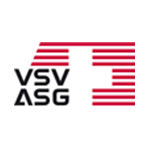before analysing in terms of illegality and risk: red flags, borderlines, false positives
Structures, transactions (loans, donations…), dealing with domestic rules (anti-corruption, currency control…), sanctioned clients, new sources of wealth and opportunities since 2022
Sergei Alimirzoev, Partner, Alimirzoev & Trofimov Law Firm, Moscow
Ilya Aleshchev, TEP, Partner, Alimirzoev & Trofimov Law Firm, Moscow
TRANSACTIONS
Understanding transactions made by Russian clients: red flags, borderlines and false positives
- Various practical reasons why Russian HNWIs have historically and currently aim to anonymize UBO in their structures: physical security, protection from government raids, latest cases of confiscation/ nationalization of Russian assets
- Latest RF court cases on de-privatization revealed real UBO’s of Russian business (former government officials): Makfa (pasta factory) case;
- Re-assessment of loans as most popular means of financing: loans to business partners (de-facto representing an equity interest); intra-family loans: armslength loans, soft loans, provisions for establishment in life as a succession planning, sham transactions, or means to conceal other transactions?
- Gratuitous transactions – genuine donations or concealed transactions? Gratuitous asset transfer from an offshore company to its UBO as a legitimate de-offshorisation technique;
- Post-2022 requirements to sell Russian subsidiaries at 50% discount gave raise to parallel payments outside of Russia;
- Adult children: business successors, independent entrepreneurs, or straw persons?
- [Ex]wives and unmarried partners: empowered women or nominees?
- Red flags in business transactions from sanctions, AML and anti-corruption perspective
STRUCTURES
Understanding the types of structures set up by Russian clients; understanding the real needs behind; what to think in terms of illegality and risk?
- Russian HNWIs tend to have the same needs as many HNWI from emerging countries have (confidentiality, strong desire to protect assets from spouses, creditors, partners; need for direct but hidden control)
- After 2022 the trend is for simplification of existing structures, often to direct ownership by UBO;
- For families who do have members unrelated or less related to Russia (adult children, wives) the non-Russian assets are transferred to them; some use nominees
- The structures which were not dismantled are often re-domiciled to ‘friendly’ jurisdictions
- Political uncertainly in Russia and abroad, existing and expected sanctions make creation of new structures less viable; but when the time will come, this will likely be in ‘friendly’ jurisdictions or in Russia
- Closed-end Investment Funds;
- Joint Stock Companies;
- UAE foundation;
- Russian private foundation.
SUCCESSION PLANNING
Understand how Russian HNWIs do their succession planning
- Russian client’s fatalistic approach to [lack of] succession planning and the typical problems it creates
- Successors of the Russian Clients and Western financial institutions: typical issues [case studies]
- Source of wealth checks for successors: issues successors face when inheritance is not taken as an answer
- When an SDN (Specially Designated National) passes away: do the sanctions follow the money and how they can be inherited?
- Effect of latest provisions of EU 12th Sanctions Package on succession
DEALING WITH DOMESTIC RULES
Understanding the actual solutions used by Russian clients and how they are viewed from the point of domestic rules vs. views from foreign banks, service providers, etc.
- Civil servants and anti-corruption rules: transferring their business to the divorced wife / foundation / blind trust / nominee / business partner with buyback option
- Recent RF authorities cases on de-privatization of old businesses: Metafrax Chemicals (spirits), Makfa (pasta factory), Chelyabinsk Electrometallurgical Plant, etc
- New Federal Law on Companies Significant for Economy: foreign shareholders deprived of corporate rights and even forced squeeze out; X5 (major supermarket chain) as the first implementation example
- Currency control rules
- Sanctions
- Forced heirship rules under Russian succession law
- Latest cases of bankrupting foreign companies in RF and subsidiary liability of UBO’s and other foreign controlling persons (lawyers, bankers, accountants, etc.)
NEW SOURCES OF WEALTH & INCOME SINCE 2022
Understanding the new Sources of Wealth / income and the new opportunities since 2022; what to think in terms of illegality and risk?
- Acquisition of western businesses- trade, imports
- Post-2022 requirements to sell Russian subsidiaries at 50% discount gave raise to transaction structures which involve parallel payments in non-Russian bank to compensate for the ‘compulsory discount’, can be disguised as ‘something else’:
- loans with a subsequent waiver
- sale of shares in a SPV or ‘start-up company’
- investment in a joint venture
- .. and even cash in banknotes
SANCTIONED CLIENTS
Sanctioned Russian clients’ circumventing the foreign sanctions: lessons from recent cases
Understand Russian clients’ behaviours and motives
I wish to see this past conference on zoom
Contact by the phone
ACADEMY & FINANCE SA
Rue Neuve-du-Molard 3
1204 Genève
Switzerland
T + 41 (0)22 849 01 11
E info@academyfinance.ch


